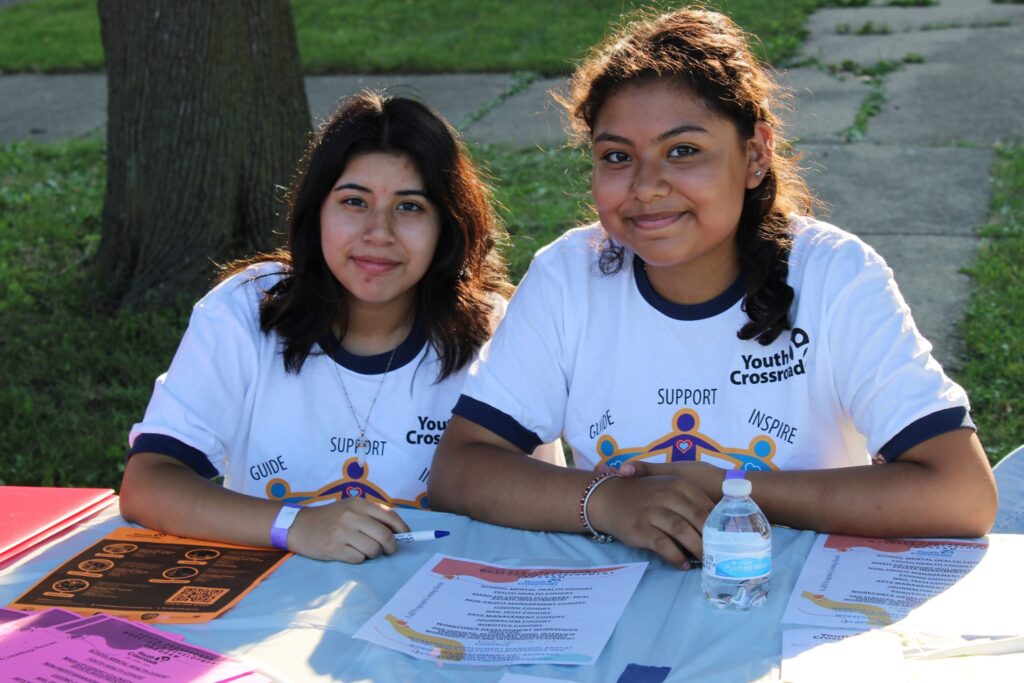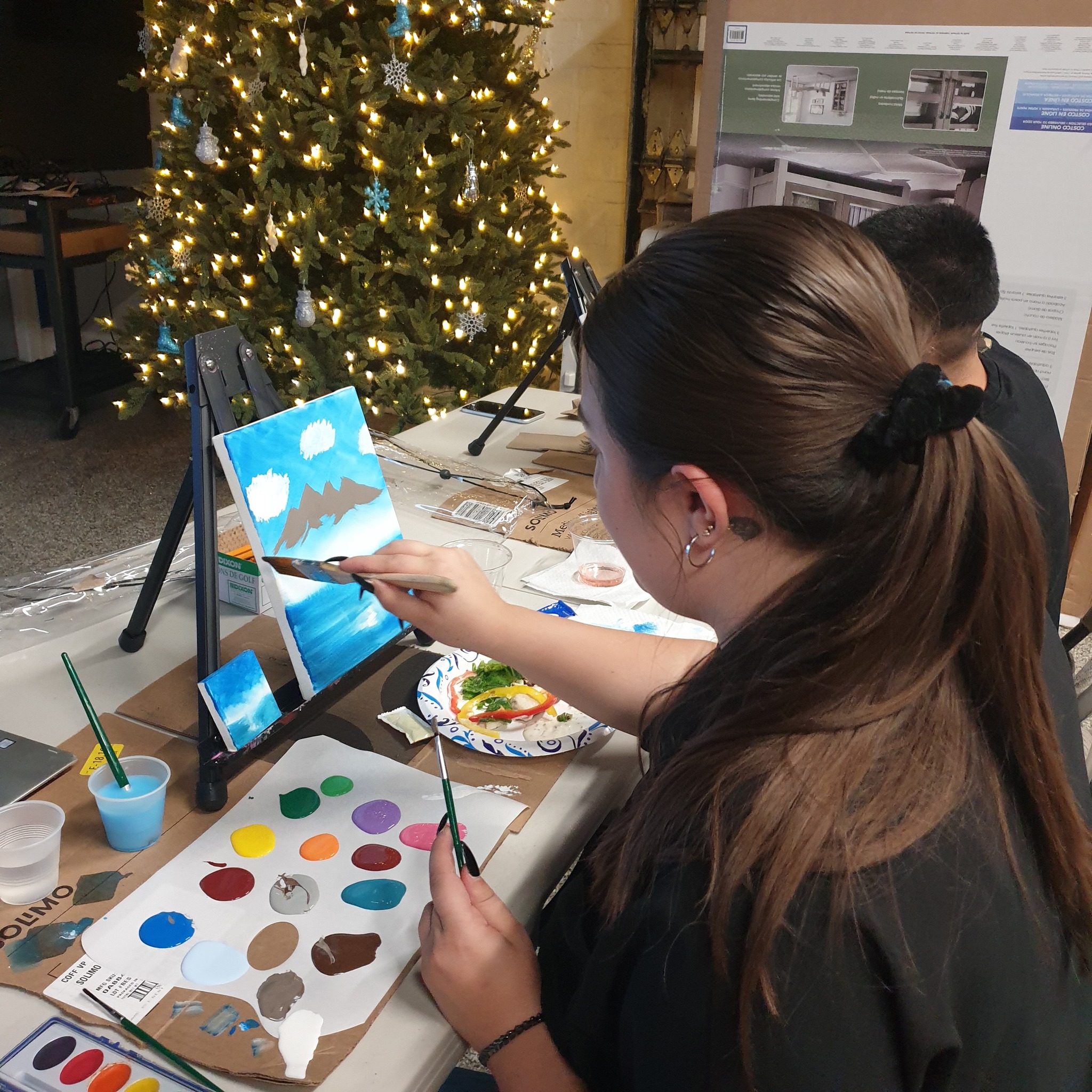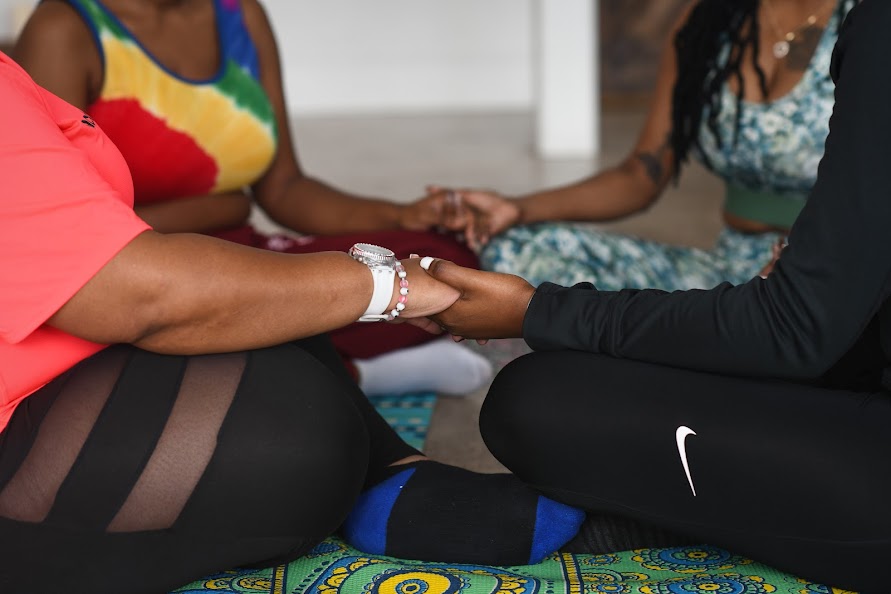
For Mental Health Awareness Month, The Reva and David Logan Foundation (RDLF) is highlighting 6 of our grantees for their work supporting mental health in their communities:
Juvenile Protective Association (JPA)
Onward House
Sista Afya Community Care
Youth Crossroads
Impact Behavioral Health Partners
Communities in Schools of Chicago (CIS)
We asked leaders from each organization to answer 5 questions about mental health and what you can do during Mental Health Awareness Month. Responses were edited for length and clarity.
1. What is the purpose of Mental Health Awareness Month?
Camesha Jones, Executive Director at Sista Afya: It’s an opportunity for our community to learn more about mental health, increase advocacy and visibility of the experiences of people with mental health conditions, and to discuss solutions to meet the needs of our respective communities.
Josephine DiCesare, Executive Director at Youth Crossroads: It’s a chance for people to increase their understanding of mental illness and resources available for help. It also is an opportunity to destigmatize mental illness.
Bartholomew St. John, Chief Innovation and Communications Officer at CIS: It helps center attention on an issue that is central to our organization’s everyday work with students and school communities. It brings issues such as the national youth mental health crisis to the forefront and incorporates calls to action that all can heed.
Patti Capouch, Executive Director at Impact: It highlights our mission to develop and champion opportunities for people with serious mental illness by providing comprehensive services in housing, employment, and clinical support so that each person can live as independently as possible.
Karim Escobar-Franklin, LSW, Mental Health Specialist at Onward House: It’s an opportunity for communities to educate themselves on Mental Health. It is not solely about mental health illnesses but also about taking care of yourself, learning the many ways that stress can be relieved, and learning that mental health starts from birth.
Karen Foley, Executive Director at JPA: It means lifting up hope! At JPA, we know that when people invest in their mental health and wellness, life improves in small and big ways. Dedicating an entire month to mental health is a wonderful way to improve individual lives and help our community feel and function better.
2. What are some ways an individual can participate in Mental Health Awareness Month?
Sista Afya: Look up organizations to support, engage in mental wellness practices, and share information with your networks about mental wellness.
Youth Crossroads: Attend events, volunteer at organizations that deal with mental health, or even just share information through social media.
CIS: Become certified in Youth Mental Health First Aid. Members of the public can visit cisofchicago.org/mhfa to learn about upcoming trainings that are offered for a nominal fee by our organization.
JPA: In a world that can feel chaotic and often unjust, take a moment to pause and reflect on something beautiful–a person, place, or thing–and enjoy the sense of appreciation you feel. Then share the peace.
Onward House: Reflect on the last time you invested into your self-care. Reduce stress with calming music and aromatherapy, and read material on how to cope with life when things become overwhelming.
Impact: Advocate for people living with a mental illness by holding space for mental health conversations. Storytelling is a powerful tool; it can be used to destigmatize mental illness and to put a face to Mental Health Awareness in May, and all year long.
The field of community health is very rewarding, but it’s also challenging. The folks who do this work endure significant stress while supporting others. If you know a mental health worker, reach out to them and let them know that you appreciate the very important work that they do.

3. Do you have any tips for someone who wants to prioritize their mental health?
Onward House: Prioritizing your mental health can look many different ways, but the most general start is to initiate a self-care plan and establish boundaries to regain control of whatever is currently overwhelming. A routine and scheduled self-care is equally as important as getting the proper hours of sleep on a daily basis.
Sista Afya: Take small steps to integrate wellness into your day-to-day life. This may look like going to therapy, taking time for rest, and creating opportunities for social connection and support. Starting small is more sustainable and practical for people beginning their focus on mental wellness.
Youth Crossroads: Take time for self-care. Say no when necessary. Let others know that you are prioritizing yourself and set boundaries.
Impact: Make time for your own mental health, by knowing when you need support from friends and family. Current events, social responsibilities, isolation, and technology can all affect someone’s mental health. Practice a mindful approach to self-care, and check in with yourself to see what may be affecting your mental health. Find your support system—identify a person or people in your life who you can count on when you need help. Learn healthy coping skills by determining what works for you—anything from painting to meditating to playing with a fidget toy can be a useful coping skill.
JPA: Don’t be afraid to ask for help. The richest, most successful people I know have a trove of experts on speed dial. If you want help on your journey to prioritize your mental health, take the first step and make a call. If you’re feeling okay but want more of that feeling, be sure to be fully present for a few minutes in your life every day–you’ll notice a difference!
CIS: It’s important to note that the range of options for people to prioritize their mental health is shaped by the state of their mental health. A person experiencing a mental health crisis, as an example, needs immediate help; turning to a self-care strategy in that type of situation would not be appropriate. In other cases, however, where a person is not in mental health crisis and seeking ways to invest in their mental health, self-care strategies like exercise, prioritizing sleep, and eating nutritious meals can be beneficial.

4. If someone is seeking help, where would you recommend they find it?
CIS: For people who are proactively seeking support in earlier stages of a developing mental health challenge, options could include talking to a primary care physician for initial guidance, exploring support via a mental health counselor/agency, or speaking with a school social worker or counselor.
Onward House: I would talk to my primary physician and share my experiences. They are able to start the referral process. If there is an issue with having access to insurance, I would recommend visiting a facility that charges on a sliding scale.
Sista Afya: If someone is seeking help, I would recommend calling 988 or any local mental health hotlines to learn more about resources in your area or doing a web search (google is your friend) to find mental health services near you and resources.
Youth Crossroads: We encourage people to confide in someone they trust, whether it is a friend, teacher or parent. School counselors are a great resource. United Way has a 211 line people can call. The most important thing to do is ask for help.
Impact: If someone is experiencing a mental health crisis, they can call or text 988 at any time for support from a trained crisis worker. This service is available nationwide. If an individual is eligible for our therapy, case management, or employment services, we encourage them to fill out our participant interest form: https://impactbehavioral.org/eligibility/.
JPA: JPA’s New Light clinics might be one place to try. You can also grab a copy of Psychology Today and find a therapist that seems like a good fit. Don’t be afraid to ask a potential therapist how they approach treatment, or any other question on your mind. The relationship you build with your therapist is important.

5. What can we do to help destigmatize mental illness?
CIS: People with lived experiences of mental health challenges can be very powerful messengers to help de-stigmatize the issue. It’s also important to reinforce the message of recovery in mental health conversations. We take this notion for granted when it comes to physical health – a person breaks their wrist or contracts mono, they’re naturally asking their doctor how long will it be until they’re better. Recovery is also a central concept in mental health, but it’s not always as easily recognized. The more we can make that parallel between physical and mental health, the more we can help destigmatize people’s views on mental illness.
Impact: Our participants, and individuals living with mental illness, are courageous, resilient and creative. Our participants, however, are not alone. It is very likely that we all have experienced or encountered someone experiencing the symptoms of mental illness at multiple points in our lives. Furthermore, individuals living with a serious mental illness, either diagnosed or undiagnosed, live and work in communities everywhere. These individuals are indistinguishable from others because they are thriving members of those communities.
1 in 5 people is living with a diagnosable mental illness. The language that we use matters. Using people-first language is a step that anyone can take to remove stigma from mental illness. People-first language is a way of describing a person, not their disability, and emphasizes the person over their condition. When people have the opportunity to speak mindfully about mental health and mental illness, it can bring better awareness to the topic.
JPA: Almost all of us will have hard times in life. One way we can help destigmatize mental illness is to gather up the courage to listen when people need to talk about hard things without jumping to judgement, trying to solve someone else’s problem, or offering superficial counsel. Just be there for the other person.
Youth Crossroads: Giving people a platform to share their own experiences is extremely important. Others can see that mental illness can affect anyone – their family, friends, neighbors.
Onward House: Many times, the solution is not just found in medications. At times it requires consistent care. Regardless of the diagnosis, stability is important. Mental illness is different for many people, and usually you would never know someone’s dealing with it unless they felt comfortable sharing. It’s important to be kind to others, because you never know what they are dealing with in life.
Sista Afya: To destigmatize mental illness, we can normalize that mental health conditions can happen to anyone. Having challenges with your mental health is nothing to be ashamed of and it is a shared responsibility for all of us to support one another. Once you get the appropriate support, and you are consistent with care, you will see changes that improve your quality of life.

___________________________
Each of these organizations approaches mental health from a unique direction, but there are key commonalities when thinking about mental health.
- Many of us will deal with mental health challenges during our lifetimes, and there are a variety of resources to support us when we are in need. Mental illness is curable or containable in most cases. We are all vulnerable.
- It is important, essential, that people who are suffering know how and where to find resources.
- The more we can destigmatize mental illness, the easier it will be for people to educate themselves and find help when they need it.
